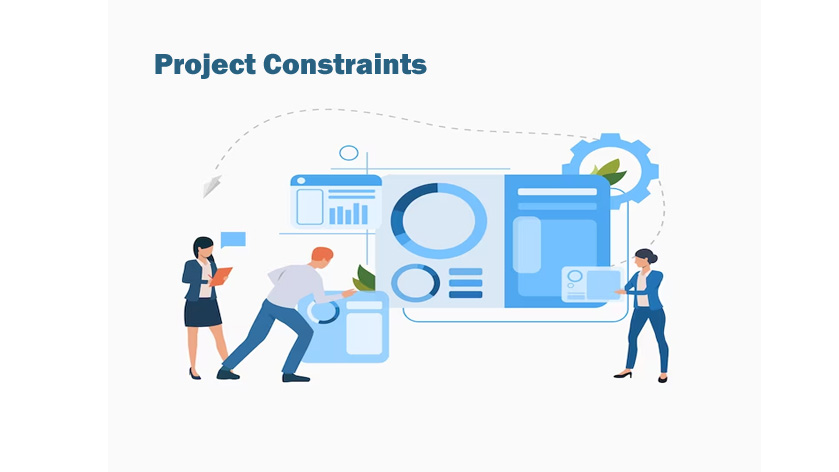Project constraints are the limitations that need to be accounted for during the project life cycle. For example, a time constraint means that you have a limited period to complete a particular project, or if you talk about cost constraint, it means you have a limited amount of budget to complete a particular project. Constrained management is necessary for project success. A limited timeline, cost, or anything else can make you complete your project on time and within budget.
Six basic types of project constraints will help you through the phases of project management. There are six primary project constraints: cost, resources, time, quality, risk, and scope.
Types of Project Constraints
As we have seen, there are six types of project constraints. Let us understand all of them briefly:
- Cost: Any project should have a budget limit to manage costs efficiently to ensure the project stays within the company’s budget.
- Resources: Any project requires various resources, including materials, technology, and equipment. So, using and managing these resources is essential to meet project goals effectively.
- Time: Projects are often constrained by the specific period they should be completed. When you delay the completion of work, it could harm your project or delay the deadlines of other projects you must do after the previous project.
- Quality: The Project must meet specific quality standards. You must balance the quality with other constraints like cost or time to deliver a successful project.
- Risk: Projects are inherently risky, but determining, assessing, and handling risks is crucial for success. Risk can impact the project’s different aspects, including all the above constraints.
- Scope: The Scope is defined as a boundary of the project that consists of features and tasks that need to be accomplished. An uncontrolled expansion of a project scope will lead to increased costs and delays of time.
Conclusion
Effective project management involves identifying, analyzing, and managing these constraints to deliver the project successfully while meeting stakeholder expectations and objectives. It requires careful planning, monitoring, and adjustment throughout the project lifecycle.

